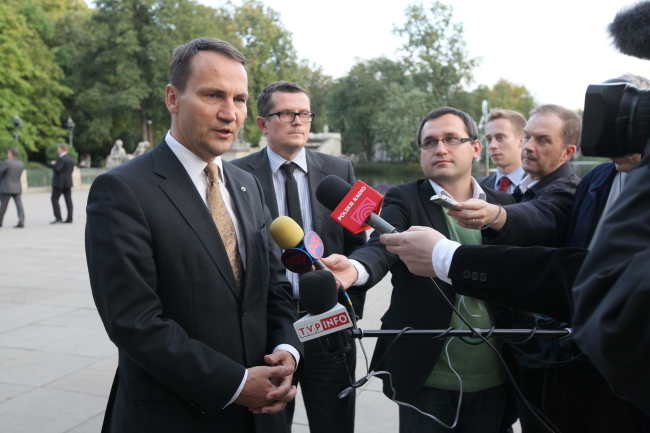
Minister Sikorski proposes radical reforms in Warsaw: photo - PAP/Pawel Supernak
The 11 foreign ministers which make up the group have published a report after their final meeting in the Polish capital on Tuesday which proposes greater political integration of the 27-nation bloc.
Poland's foreign minister, Radek Sikorski, who hosted the group originally set up nine months ago by his German counterpart, Guido Westerwelle, told the Gazeta Wyborcza daily that there was not unanimous support within the group for every proposal.
“We wanted the final document to be strong and visionary, so naturally we could not satisfy everyone with every word. Poland subscribes to the ideas in the report and its philosophy,” Sikorski said.
He said the president of the European Commission should either be elected by universal suffrage or “by MEPs in the European Parliament”.
Sikorski said of the report's proposed single European border guard: “To maintain the benefits stemming from the freedom of movement within the Schengen Zone, we need to strengthen external borders. After Finland [Poland] has the longest external border in the EU. Our border guards are considered one of the best in Europe and I'm sure they could guard the borders outside Poland”.
Radek Sikorski and Guido Westerwelle, in an article jointly written for the New York Times, call for: “stronger powers at the EU level to oversee member states’ budgets, making economic coordination between member states more binding in areas that are key for growth and competitiveness, and establishing an effective supervisory mechanism for banks. We also believe that the European Stability Mechanism should be further developed into a “European Monetary Fund.”
“The answer to our current conundrum is more, not less, Europe,” the ministers write.
On a EU defence force, Sikorski and Westerwelle write that, “we have already set up the EU’s External Action Service. We must now enhance its coherence and visibility. We have to greatly strengthen the Common Security and Defense Policy as well. Shying away from military capabilities simply sidelines the EU”.
“For Europe to be a truly strong actor and global leader it needs a strong institutional setup, a streamlined and efficient system for the separation of powers,” the ministers say of the conclusions in the report published yesterday.
“It also needs a directly elected European Commission president who personally appoints the members of his “European Government,” a European Parliament with the powers to initiate legislation and a second chamber for member states.” (pg)